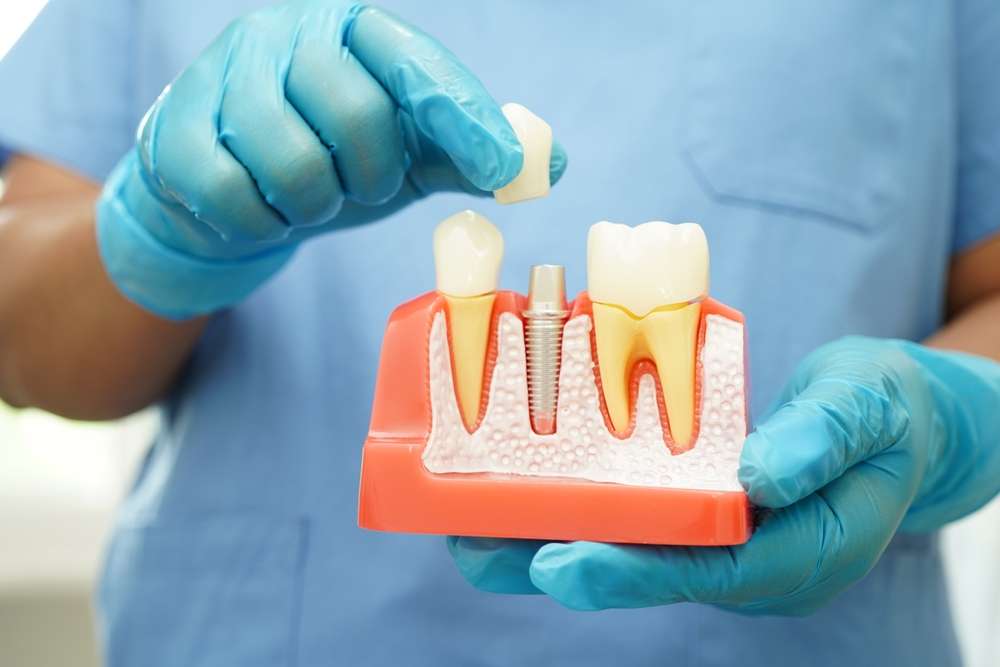Dental Implant Costs and Options in US for 2025: Comprehensive Guide and Alternatives
Are you planning to invest in dental implants in the United States in 2025, but feel overwhelmed by the costs and array of options? This essential guide cuts through the complexity, providing a clear breakdown of average prices for single and full-mouth restorations, explaining the factors that cause costs to vary by state and procedure type (like All-on-4 or mini-implants), and detailing every available financing and alternative option, ensuring you make a confident, financially sound decision.

Average Cost of Dental Implants by State and City
Dental implant costs vary considerably across the United States, influenced by regional economic factors, provider expertise, and local market conditions. A single dental implant typically ranges from $1,500 to $6,000, including the implant post, abutment, and crown. In metropolitan areas like New York City, Los Angeles, and San Francisco, prices tend toward the higher end due to elevated overhead costs and demand for specialized practitioners. Conversely, states in the Midwest and South, such as Texas, Ohio, and Tennessee, often offer more competitive pricing, with single implants averaging $1,800 to $3,500. Urban centers generally command premium rates compared to suburban or rural locations, where operational expenses are lower.
Breakdown of Full-Mouth Implant Costs
Full-mouth dental implant restoration represents a significant investment, with costs ranging from $24,000 to $100,000 or more per arch. The wide price range reflects variations in treatment approaches, including the number of implants required, the type of prosthetic used, and the complexity of the case. All-on-4 implant systems, which use four strategically placed implants to support a full arch of teeth, typically cost between $15,000 and $30,000 per arch. Traditional full-mouth implant-supported dentures requiring six to eight implants per arch can exceed $40,000. These estimates include surgical placement, temporary prosthetics during healing, and final restoration. Additional procedures such as bone grafting, sinus lifts, or extractions increase overall expenses and extend treatment timelines.
| Provider Type | Service Offered | Cost Estimation |
|---|---|---|
| Private Dental Practice | Single Implant (post, abutment, crown) | $3,000 - $6,000 |
| Dental School Clinic | Single Implant (supervised treatment) | $1,500 - $3,500 |
| Prosthodontic Specialist | Full-Mouth All-on-4 (per arch) | $20,000 - $30,000 |
| Oral Surgery Center | Full-Mouth Traditional (per arch) | $35,000 - $50,000 |
| Corporate Dental Chain | Single Implant with financing | $2,500 - $5,000 |
Prices, rates, or cost estimates mentioned in this article are based on the latest available information but may change over time. Independent research is advised before making financial decisions.
Insurance and Financing Options Including CareCredit and FSA/HSA
Most dental insurance plans categorize implants as elective procedures, providing limited or no coverage. However, some policies cover portions of the treatment, such as the crown or preliminary procedures like extractions. Reviewing your plan details and obtaining pre-authorization can clarify potential benefits. Flexible Spending Accounts (FSA) and Health Savings Accounts (HSA) allow you to use pre-tax dollars for dental implants, effectively reducing your out-of-pocket costs by your marginal tax rate. CareCredit, a healthcare-specific credit card, offers promotional financing with deferred interest periods ranging from six to 24 months, making treatment more accessible through monthly payment plans. Many dental practices also provide in-house financing arrangements with varying interest rates and terms. Comparing multiple financing options ensures you select the most favorable terms for your financial situation.
Alternatives to Implants: Bridges and Dentures
While dental implants offer superior longevity and functionality, several alternatives exist for tooth replacement. Traditional fixed bridges, which anchor to adjacent natural teeth, cost between $2,000 and $5,000 per unit and typically last 10 to 15 years. This option requires altering healthy neighboring teeth to support the prosthetic. Removable partial dentures replace multiple missing teeth at a cost of $700 to $3,000, though they may feel less stable and require periodic adjustments. Complete dentures for full-arch replacement range from $1,000 to $8,000 depending on materials and customization. Implant-supported dentures combine the stability of implants with the affordability of dentures, using two to four implants per arch to secure the prosthetic. Each alternative presents distinct advantages and limitations regarding comfort, maintenance, durability, and aesthetics.
Factors Affecting Implant Pricing: Bone Grafts and Materials
Several clinical and material factors influence the total cost of dental implant treatment. Bone grafting procedures, necessary when jawbone density is insufficient to support implants, add $300 to $3,000 per site depending on the grafting material and complexity. Sinus lift procedures for upper jaw implants can increase costs by $1,500 to $5,000. Implant materials also affect pricing, with titanium implants representing the standard option due to proven biocompatibility and osseointegration rates. Zirconia implants, a metal-free alternative preferred by some patients with metal sensitivities, typically cost 20 to 30 percent more. Crown materials range from porcelain-fused-to-metal to all-ceramic options, with aesthetic considerations influencing selection and price. Provider experience, geographic location, and the use of advanced technologies like 3D imaging and computer-guided surgery further contribute to cost variations.
Making Informed Decisions About Your Treatment
Selecting the appropriate tooth replacement option requires careful consideration of multiple factors beyond cost alone. Dental implants offer exceptional durability, with success rates exceeding 95 percent over 10 years, and preserve jawbone integrity by stimulating natural bone growth. The initial investment often proves cost-effective over time compared to alternatives requiring frequent replacement or adjustment. Consulting with qualified dental professionals, obtaining multiple treatment estimates, and exploring all financing options empowers you to make decisions aligned with your health goals and financial capacity. Prioritizing providers with verified credentials, transparent pricing structures, and comprehensive treatment plans ensures optimal outcomes and minimizes unexpected expenses throughout your dental restoration journey.
This article is for informational purposes only and should not be considered medical advice. Please consult a qualified healthcare professional for personalized guidance and treatment.




